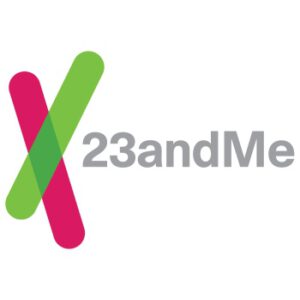What does getting this marketing authorization mean for existing and  future customers?
future customers?
As the first direct to consumer genetic test to complete the regulatory pathway, 23andMe’s Bloom Syndrome Carrier Status test was given marketing authorization through the de novo pathway. This is the first direct-to-consumer genetic test granted marketing authority by the agency.
Because this process was successful, we may be able to submit some future submissions through the standard 510(k) pathway.
In addition to the authorization to market the Bloom Syndrome Carrier Status test report, the FDA is also classifying autosomal recessive carrier screening tests as class II with the intention to exempt such carrier tests from FDA premarket review.
According to the FDA’s press release, the “agency plans to issue a notice that announces the intent to exempt these tests and that provides a 30-day period for public comment. This action creates the least burdensome regulatory path for autosomal recessive carrier screening tests with similar uses to enter the market.”
This is the first step in our commitment to returning health information to our customers. We will continue to keep our community informed of our progress, but will not return results on individually cleared reports until we complete the regulatory process on additional health reports and have a more comprehensive product offering.
What is Bloom syndrome?
Bloom syndrome is a rare disorder that is more common in people of Central and Eastern European, or Ashkenazi, Jewish background. One in 107 people of Ashkenazi Jewish descent are carriers for Bloom syndrome. The disorder is characterized by among other things short stature, sun-sensitive skin changes and an increased risk of cancer. According to the National Institute of Health, this condition is inherited in an autosomal recessive pattern, which means both copies of the gene in each cell have mutations.
Does this mean 23andMe will again provide health reports to new customers in the US?
This is the first step in our commitment to returning health information to our customers. We will continue to keep our community informed of our progress, but will not return health results on individually cleared reports until we have a more comprehensive product offering.
Can I have access to my report for Bloom syndrome?
23andMe will not be making any health reports, including the report for Bloom syndrome Carrier Status test available to customers until we have a more comprehensive health product offering.
What does it mean to be granted a de novo authorization?
23andMe submitted a 510(k) application for its direct-to-consumer Bloom syndrome Carrier Status Test. A 510(k) is a premarketing submission made to FDA to demonstrate that the device to be marketed is substantially equivalent to a legally marketed device. The submission was converted to a de novo request.
The Food and Drug Administration Modernization Act of 1997 (FDAMA) added the de novo classification option, which provides an alternate pathway to classify novel devices of low to moderate risk. The de novo process is used by the FDA to grant marketing authorization for a device when there is no substantially equivalent product with which to compare it.
De novo marketing authorization means that 23andMe met the FDA’s premarket requirements to demonstrate the following: accuracy, validity and user comprehension.
Devices that are classified through the de novo process may be marketed and used as predicates for future 510(k) submissions.
What happened to the original 510(k) submission?
The original 510(k) submission was converted to a de novo request. 23andMe submitted a 510(k) application for its direct-to-consumer Bloom syndrome Carrier Status Test. A 510(k) is a premarketing submission made to FDA to demonstrate that the device to be marketed is substantially equivalent to a legally marketed device. The Food and Drug Administration Modernization Act of 1997 (FDAMA) added the de novo classification option, which provides an alternate pathway to classify novel devices. The de novo process is used by the FDA to grant marketing authorization for a device when there is no substantially equivalent product with which to compare it.
When will you be getting clearance for the other health reports?
This submission was for one health report, and is part of the FDA’s regulatory review of our health product. Although the submission focuses on a single rare but serious inherited condition we report to customers, Bloom syndrome, it is an important step in our work with the FDA in the coming months.
We believe there is a regulatory path forward for direct-to-consumer genetic testing. Working in close collaboration with the FDA, we believe we have begun to establish the parameters for future submissions.
More importantly, for our customers, it marks a baseline on the accuracy and validity of the Bloom syndrome Carrier Test information we will report back to them. The submission includes robust validation data covering major components of our product such as the genotyping chip, software and saliva kit.
What will the future submissions be based upon?
Future submissions will be based on the learnings we gained during the Bloom syndrome review process. Because this process was successful, we may be allowed to provide some reports without premarket review and to submit some future submissions through the standard 510(k) pathway.
What is the timing for those submissions?
We don’t have any specific timing for additional report submissions.



